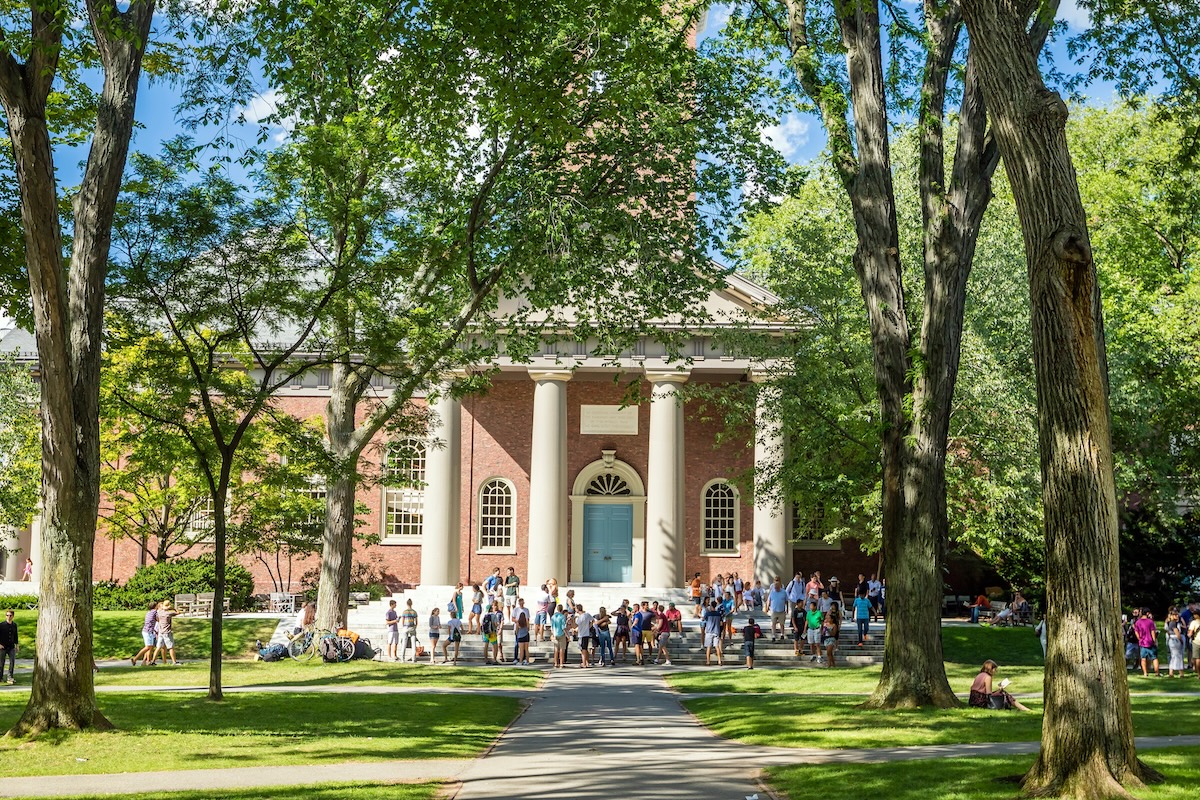
College students, families, and universities continue to navigate changing higher education policies and the challenges of funding and campus development. Here’s a quick look at the most important stories shaping higher education and student personal finance on October 17, 2025.
🎓 Top headlines at a glance
- Brown University rejects Trump’s federal funding “deal” over academic freedom concerns.
- Harvard University posts a $113 million deficit amid federal funding cuts and rising costs.
- Arthur Blank Foundation pledges $50 million in scholarships to Atlanta HBCUs.

Would you like to save this?
1. Brown University rejects federal funding agreement
Brown has Officially rejected To sign the Trump administration’s proposed “Compact for Academic Excellence,” which would tie federal grants to compliance with policies restricting DEI programs and international enrollment. President Brown warned that the charter threatens academic freedom and institutional independence.
➡️ impact: Universities Resistance to agreement He would risk losing access to new federal funding sources. Students and faculty at compatible universities may face policy shifts that affect diversity, recruitment and admissions. Massachusetts Institute of Technology It was the first college to reject the agreement last week.
2. Harvard University announces an operating deficit of $113 million
Harvard I mentioned A loss of $113 million in fiscal year 2025, the first significant deficit in years. Contributing factors include cuts in federal research funding, legal costs related to clashes with the government, and higher operating expenses.
➡️ impact: The university is implementing a hiring freeze, cost cuts and reevaluating its overall financial outlook. Pressure on donor giving, endowment liquidity, and student aid support may increase in the future.
3. A $50 million gift to historically black colleges to close student gaps
the The Arthur Blank Family Foundation has pledged $50 million Over 10 years of supporting “gap scholarships” at historically black colleges in Atlanta (Clark Atlanta, Morehouse, Spelman, Morris Brown). The money goes to students in good academic standing who are close to graduation but lack the resources to finish school.
➡️ impact: We hope this will help reduce the risk of dropping out for many students who are close to completing their studies. It also sends a message about private support to fill the gaps left by public funding cuts.
Bonus: What you should know about the Education Charter
The Trump administration’s Charter for Academic Excellence (PDF) proposes tying federal funding to compliance with certain initiatives. While many initiatives appear appropriate on the surface, the underlying conditions can be problematic.
Equality in admission and employment
Universities that receive federal benefits must adopt race, gender, and ideology-neutral admissions and hiring policies. All decisions must be based on objective and publicly available criteria, with standardized testing of applicants. The hiring of faculty and administrators must also exclude consideration of race, gender, or other protected characteristics.
problems:Many colleges have moved to test optional and want to select applicants and employees according to a variety of criteria.
Freedom of expression and institutional neutrality
The document commits universities to maintaining a “marketplace of ideas,” ensuring academic freedom while prohibiting harassment, discrimination or ideological domination. Universities must also remain politically neutral as institutions – departments and staff may not make political statements on behalf of the university unless they are directly related to their academic mission.
problems:Although this appears neutral, implementation may be one-sided. All forms of expression should be protected, even if the administration does not agree to it.
Equality between students and academic standards
Universities must apply grading, discipline and access policies equally to all students. Grades should reflect actual academic performance without inflation or bias. The agreement also defines discrimination on the basis of sex (in relation to sports and places of privacy) according to biological definitions.
problems:Many colleges have provided spaces to be inclusive of all gender identities. This seeks to identify only male and female genders.
Financial responsibility and transparency
To address student debt and ballooning administrative costs, signatories commit to freezing tuition for five years, eliminating non-essential staff, disclosing program-level earnings results, and refunding tuition for students who withdraw in the first semester. Institutions with very large endowments must waive tuition for some science students and accept the full transfer credit for military service members.
problems:Many colleges may not be in a financial position to commit to this, although it is a positive for individual students.
Foreign influence and enforcement
Universities must comply with federal anti-money laundering laws, “know your customer” laws, and foreign gift disclosure laws. Foreign student enrollment is capped at 15% of the undergraduate population (5% per country), and schools must screen students for anti-American sentiment. Annual certifications and audits are required, with penalties (including loss of Title IV benefits) for violations.
problems: Some colleges derive a significant amount of their revenue from international students, who typically pay full price and do not receive financial aid. Combine this with restrictions on freedom of expression and increased audit costs, and it becomes a problem.
➡️ Overall effect: Colleges are under pressure to choose sides — accept tougher federal requirements or reject funding and defend institutional independence.
Related reading:
Government shutdown and student loans explained (2025 update)
A new law simplifies CSU direct admission for students
AI still fails to forgive student loans
Editor: Colin Greaves
The post This Week in College and Money News: October 17, 2025 appeared first on The College Investor.





